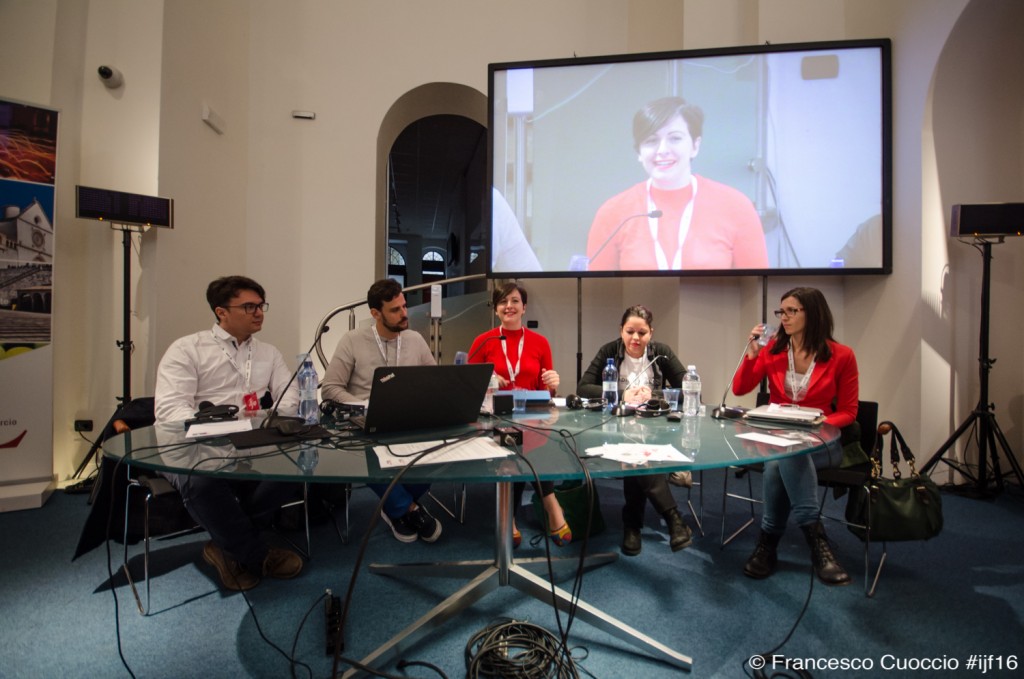
In a world where attention spans are drastically low, staying relevant and original is one of the most difficult challenges content producers of any kind are faced with. So how does one turn an idea into a sustainable, monetising podcast, particularly for a journalist?
Gaia Manco, a freelance journalist and producer of the travel podcast Accidentally in Joburg, began by discussing the current climate for podcasting. She said that podcasts are constantly evolving and, with over 250,000 podcasts on ITunes alone, the market is competitive. In the United States, with 5,000 new podcasts produced every month, there has never been more pressure to be original.
Borja Rojano, CEO and founder of tapewrite.com, said he wanted a platform similar to Medium but for audio, allowing users to not only listen to audio programmes but to discuss them as well. He said there is a common belief that people don’t pay for content but they actually do, it’s just in a different way than it was 10 years ago.
Barbara Schiavulli, co-presenter of Radio Bullets and freelance war correspondent, while saying to come from the journalism of the past, she admitted that this type of journalism did not allow sufficient space to talk about news. This is why podcasts appealed to her. Together with Alessia Cerantola, freelance journalist and co-presenter of Radio Bullets, every morning they produce a news bulletin, focusing in particular on foreign news.They do not produce news, but rather collect news from other sources. In their opinion foreign news is lacking so they try to produce news bulletins lasting ten minutes. In these bulletins they discuss news in places far away from Italy, always trying to highlight that foreign news has repercussions in one’s own country.
Francesco Baschieri, founder and CEO of Spreaker, a platform for creating audio shows with about 30,000 people publishing episodes, said he wanted to do what websites such as WordPress had done for blogs, but for audio content. That means not having to know about HTML or coding, making the experience more seamless for the user. He also said that in the last 12 months the word “podcast” has become fashionable again and the same power that commercial radio has can be replicated at home through Spreaker.
The internet has not brought us any new way of making money, Rojano said. His business plan for Tapewrite is based on the fact that making money through advertising does not work. The advertisements you hear on podcasts, he added, are not always relevant to the listener and it makes the experience disjointed. According to him, the only way to have a successful podcast service is to have 1,000 true fans who are willing to give you the equivalent of what they make in a day. The only way to make money through podcasts is to sell your content.
As for creating a podcast, Cerantola said that you simply need to have a smartphone and a microphone. When she makes Radio Bullets she records herself and then uses Audacity, a free audio editing software, to edit the mp3 file. Spreaker is where she uploads and shares her material.
For Schiavulli and Cerantola, podcasts are more powerful than radio. While agreeing, Rojano believes that, in order for people to make money from podcasts, we need to stop calling them podcasts. The name implies that they are free because podcasts are and always have typically been free. He suggested the word “show” as an alternative that implies a fee.
Your podcast is your way of building your brand as a journalist, said Manco. Podcasters can listen to their audience’s reactions through social media and even if they are the ones who speak, they are constantly listening.
Podcasts are normally a lonely experience for the listener, Rojano pointed out. Long-form audio needs to be discussed such as TV series warrant discussion. Typewrite allows for this as it has a thread-like feature which let you discuss your opinions about audio content with other users. He thinks that social interaction greatly improves these types of platforms. He also stated that he thinks high-quality producing is the most important thing in becoming a well-known podcaster and that any podcasting is not sustainable without monetisation.
According to Baschieri, there is a cultural problem between people who are accustomed to radio but not to audio content in a digital format. This is where he believes the gap needs to be bridged.
Podcasting still has a long way to go but high quality production is the key to success.